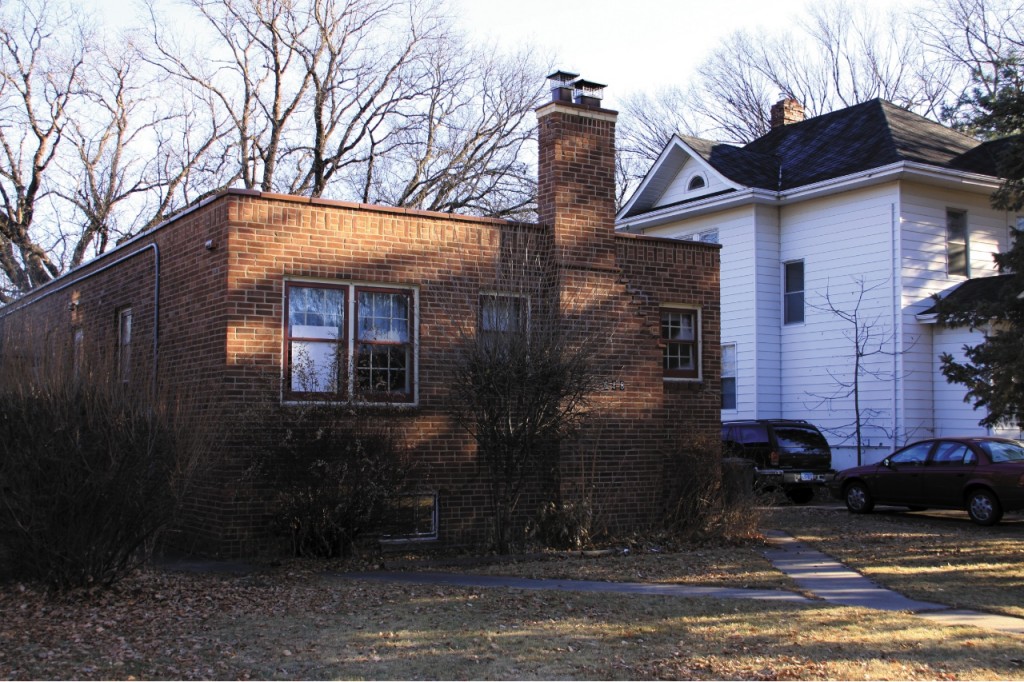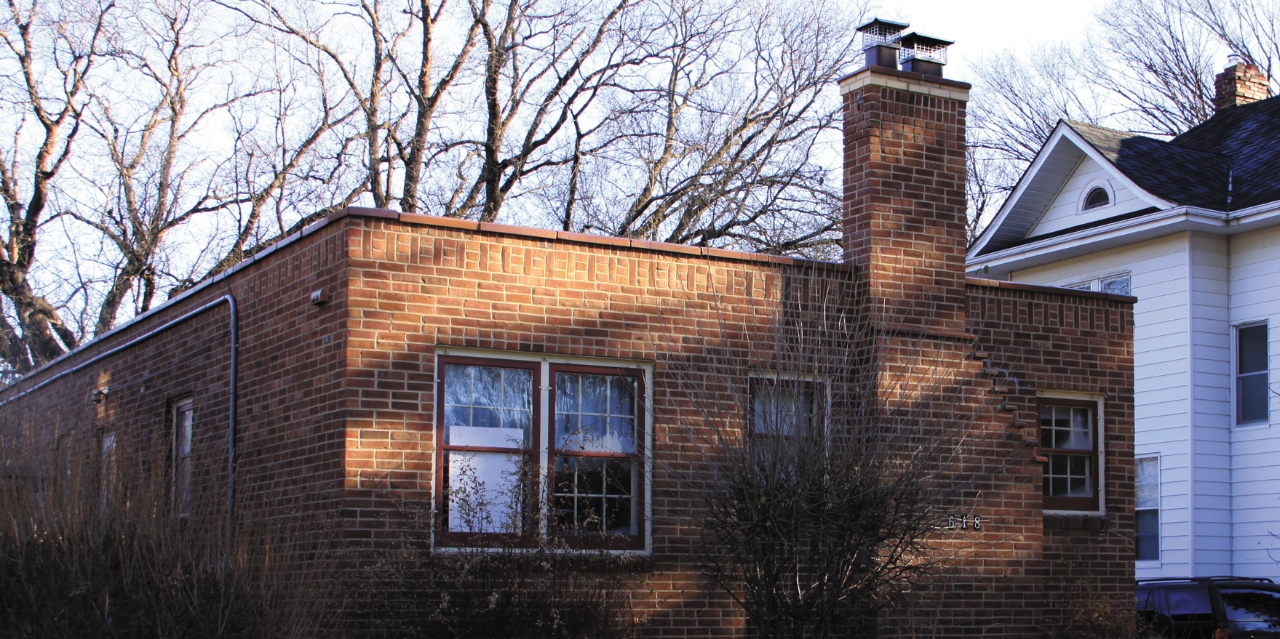
After more than a year of student efforts, Concordia College’s own eco-house is set to open next fall as a way to enable students to test out sustainability efforts to help find ways for them to live more eco-friendly lifestyles.
“This whole project is to help students lead projects that could involve students and the whole community in learning how to live sustainably,” sophomore Kristina Kaupa said.
President William Craft, along with student leaders and other members of the administration, presented the eco-house plans to the campus and community members for the first time Monday afternoon.
The residence, which will ideally house two male and two female upper-class students, is meant to serve as a hub for sustainability where students can live with like-minded people who share a passion for conserving energy and resources. By employing sustainability techniques like home-winterizing and changes in energy consumption habits, they hope to demonstrate unique ways that people can save money while simultaneously serving the environment.
“We didn’t want to make it brand new and fancy right from the beginning,” said Kaupa, one of the leaders of the eco-house project. “Instead, we want to build from the ground up and make small improvements as we go.”
The eco-house was originally proposed by senior Nathaniel Cook and 2011 Concordia graduate Erik George early last year as a way to make Student Environmental Alliance visible on campus, and senior Sarah Kjorlien took over the proposal process this past May. Through meetings over the summer and fall, the proposal became more detailed and realistic as more people got involved.
“Everyone was very supportive and had such great questions for us to answer,” Kjorlien said.
The house was approved by Craft and the President’s Cabinet last week.
“They were all very excited about how we could make connections between different projects and resources on campus to make it a success,” Kaupa said.
The house is modeled after similar projects at Grinnell College, Dartmouth College and Macalester College. Kaupa explained that Dartmouth College, in particular, decreased the energy consumption of their eco-house by 50 percent by making only behavioral changes and that these types of changes will be the main focus in the Concordia eco-house’s first year.
“This house will be different from normal on-campus housing, which is all inclusive,” said Jasi O’Connor, director of residence life. “Instead, we want to use a model where students will pay their own utilities so they can see the outcome of their work in their utility bill.”
The rent will be between $250 and $300, O’Connor said. While it will be a Concordia residence, O’Connor sees residence life as having more of a support role than overall control over the home.
“Part of the mission of the house is for students to play a leadership role both on campus and in the community at large,” O’Connor said.
Beyond just living in the home, students will be asked to host events for both students and the community to learn about the sustainability efforts being used.
“It is important to make sure that students not living there are welcomed to collaborate on projects so the eco-house is adapted as somewhere students can seek out to become actively involved,” said senior Shane Sessions, co-president of SEA.
Projects that Sessions and Kaupa hope to see facilitated by the house include home winterizing techniques, gardening, compositing and solar and water heating methods, in addition to projects students choose based on their own individual sustainability passions and basic behavioral changes.
Now that the project has been approved, facilities management and residence life are moving forward in making improvements to the home to bring it up to Concordia residence hall standards. The property, located at 618 6th St., just north of Fjelstad Hall, was already a Concordia-owned property that is rented and managed by Caldwell Bankers.
“This is a great opportunity for facilities to demonstrate their understanding between education and our mission,” said Wayne Flack, director of facilities, at the meeting Monday.
The property has been rented out previously to students seeking off-campus housing. There are minor improvements that need to be made before students will be allowed to move in, Flack explained. These improvements include bringing the windows up to code, adjusting the outlets and potentially creating another bedroom in the basement of the home.
The student leaders are working with residence life to finalize applications for the eco-house, with hopes of having them ready by the beginning of next semester. Only individual applications will be taken, rather than by groups of people wanting to live there.
“We want to create another community on campus,” Kaupa said. “We want to create more networks and expand our reach of sustainability.”
Applicants do not need to be members of SEA or be science majors in order to be chosen.
“We just want them to be passionate about sustainability and looking for ways to be involved on campus,” Kaupa said.
Some of the topics that will be included on the application are why students are interested in living in the eco-house, how living there will help them become more responsibly engaged in the world and what types of projects they would like to initiate in the home. O’Connor explained that applicants will be chosen based on their responses.
“This is a wonderful opportunity for the eco-house to reflect and embody the ideals of our college,” Craft said. “It’s going to be great fun.”


– Yay, will there be ecological carrots for dinner today as well?
– Of course, we are in the eco-house!